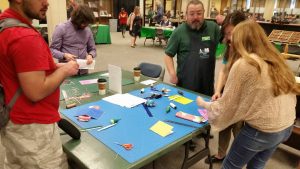
Teaching an ancient technology as part of a DH Maker Fair.


Leave a Reply